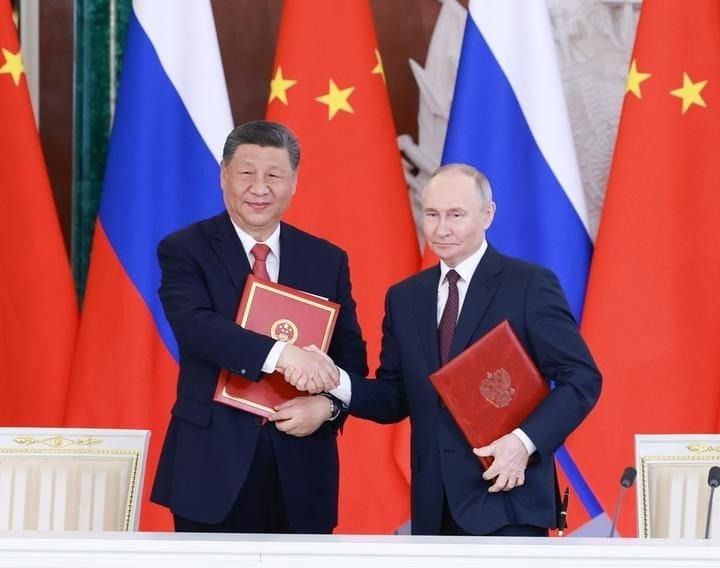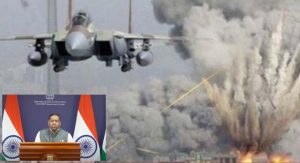In a joint statement issued Thursday on global strategic stability, China and Russia urged all nuclear-armed nations to discard Cold War-era thinking and zero-sum approaches. The two nations highlighted the necessity for constructive engagement among major powers in addressing global strategic concerns.
They emphasized that nuclear-weapon states have unique responsibilities for upholding global security. Instead of escalating tensions, these countries should avoid actions that increase strategic risks and prioritize dialogue and mutual respect to foster trust and reduce the chances of critical misjudgments.
The statement criticized some nuclear powers for failing to adopt such responsible behavior, noting rising tensions that have brought these nations dangerously close to direct military conflict. The evolving strategic landscape continues to introduce new risks, including the growing possibility of nuclear confrontation.
China and Russia expressed deep concern over actions such as the expansion of permanent military bases near other nuclear states, shows of force, and hostile moves that jeopardize the core security interests of other nations. These developments, they said, pose some of the most immediate strategic threats today.
The two countries also condemned the trend of forward-deploying advanced offensive and defensive military systems, calling it a destabilizing factor. Particular criticism was directed at the U.S. “Golden Dome” initiative — a proposed global, multi-layered missile defense system designed to counter a broad range of threats, including those from technologically advanced adversaries. According to the statement, this plan undermines the balance between strategic offense and defense, a cornerstone of international strategic stability.
Additionally, the initiative supports the development of both kinetic and non-kinetic missile interception capabilities, and includes efforts to neutralize threats even before launch — known as “left-of-launch” operations. The document noted that the program also advocates for the militarization of outer space, with plans to deploy orbital intercept systems, thereby turning space into a potential battlefield.
China and Russia firmly rejected any effort to weaponize outer space or turn it into a theater of military confrontation. They denounced the use of commercial space platforms to interfere in the internal affairs of sovereign states or influence ongoing conflicts.
According to the statement, some nuclear powers, with backing from their allies, aim to weaken the strategic deterrence of other nations in a quest for absolute military dominance — a goal that contradicts the foundational principles of strategic parity and shared security.
The joint declaration called for the complete avoidance of military conflict between nuclear-armed states and emphasized resolving disputes through diplomacy, built on mutual understanding and respect for each other’s security concerns.
Furthermore, China and Russia criticized the AUKUS security pact — a trilateral alliance between the U.S., U.K., and Australia — for its efforts to develop military infrastructure related to nuclear forces in a region covered by the South Pacific Nuclear Free Zone Treaty.














